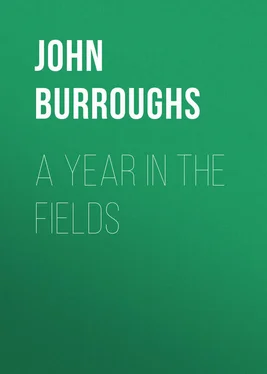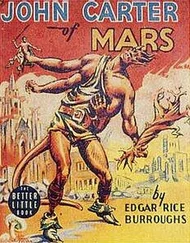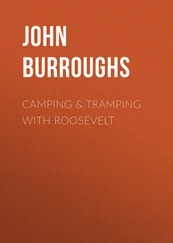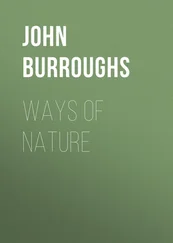John Burroughs - A Year in the Fields
Здесь есть возможность читать онлайн «John Burroughs - A Year in the Fields» — ознакомительный отрывок электронной книги совершенно бесплатно, а после прочтения отрывка купить полную версию. В некоторых случаях можно слушать аудио, скачать через торрент в формате fb2 и присутствует краткое содержание. ISBN: , Жанр: foreign_antique, foreign_prose, Историческая проза, на английском языке. Описание произведения, (предисловие) а так же отзывы посетителей доступны на портале библиотеки ЛибКат.
- Название:A Year in the Fields
- Автор:
- Жанр:
- Год:неизвестен
- ISBN:http://www.gutenberg.org/ebooks/31292
- Рейтинг книги:4 / 5. Голосов: 1
-
Избранное:Добавить в избранное
- Отзывы:
-
Ваша оценка:
- 80
- 1
- 2
- 3
- 4
- 5
A Year in the Fields: краткое содержание, описание и аннотация
Предлагаем к чтению аннотацию, описание, краткое содержание или предисловие (зависит от того, что написал сам автор книги «A Year in the Fields»). Если вы не нашли необходимую информацию о книге — напишите в комментариях, мы постараемся отыскать её.
A Year in the Fields — читать онлайн ознакомительный отрывок
Ниже представлен текст книги, разбитый по страницам. Система сохранения места последней прочитанной страницы, позволяет с удобством читать онлайн бесплатно книгу «A Year in the Fields», без необходимости каждый раз заново искать на чём Вы остановились. Поставьте закладку, и сможете в любой момент перейти на страницу, на которой закончили чтение.
Интервал:
Закладка:
The particular woodpecker to which I refer drilled his first hole in my apple-tree one fall four or five years ago. This he occupied till the following spring, when he abandoned it. The next fall he began a hole in an adjoining limb, later than before, and when it was about half completed a female took possession of his old quarters. I am sorry to say that this seemed to enrage the male very much, and he persecuted the poor bird whenever she appeared upon the scene. He would fly at her spitefully and drive her off. One chilly November morning, as I passed under the tree, I heard the hammer of the little architect in his cavity, and at the same time saw the persecuted female sitting at the entrance of the other hole as if she would fain come out. She was actually shivering, probably from both fear and cold. I understood the situation at a glance; the bird was afraid to come forth and brave the anger of the male. Not till I had rapped smartly upon the limb with my stick did she come out and attempt to escape; but she had not gone ten feet from the tree before the male was in hot pursuit, and in a few moments had driven her back to the same tree, where she tried to avoid him among the branches. A few days after, he rid himself of his unwelcome neighbor in the following ingenious manner: he fairly scuttled the other cavity; he drilled a hole into the bottom of it that let in the light and the cold, and I saw the female there no more. I did not see him in the act of rendering this tenement uninhabitable; but one morning, behold it was punctured at the bottom, and the circumstances all seemed to point to him as the author of it. There is probably no gallantry among the birds except at the mating season. I have frequently seen the male woodpecker drive the female away from the bone upon the tree. When she hopped around to the other end and timidly nibbled it, he would presently dart spitefully at her. She would then take up her position in his rear and wait till he had finished his meal. The position of the female among the birds is very much the same as that of woman among savage tribes. Most of the drudgery of life falls upon her, and the leavings of the males are often her lot.
My bird is a genuine little savage, doubtless, but I value him as a neighbor. It is a satisfaction during the cold or stormy winter nights to know he is warm and cosy there in his retreat. When the day is bad and unfit to be abroad in, he is there too. When I wish to know if he is at home, I go and rap upon his tree, and, if he is not too lazy or indifferent, after some delay he shows his head in his round doorway about ten feet above, and looks down inquiringly upon me, – sometimes latterly I think half resentfully, as much as to say, "I would thank you not to disturb me so often." After sundown, he will not put his head out any more when I call, but as I step away I can get a glimpse of him inside looking cold and reserved. He is a late riser, especially if it is a cold or disagreeable morning, in this respect being like the barn fowls; it is sometimes near nine o'clock before I see him leave his tree. On the other hand, he comes home early, being in, if the day is unpleasant, by four P. M. He lives all alone; in this respect I do not commend his example. Where his mate is, I should like to know.
I have discovered several other woodpeckers in adjoining orchards, each of which has a like home, and leads a like solitary life. One of them has excavated a dry limb within easy reach of my hand, doing the work also in September. But the choice of tree was not a good one; the limb was too much decayed, and the workman had made the cavity too large; a chip had come out, making a hole in the outer wall. Then he went a few inches down the limb and began again, and excavated a large, commodious chamber, but had again come too near the surface; scarcely more than the bark protected him in one place, and the limb was very much weakened. Then he made another attempt still farther down the limb, and drilled in an inch or two, but seemed to change his mind; the work stopped, and I concluded the bird had wisely abandoned the tree. Passing there one cold, rainy November day, I thrust in my two fingers and was surprised to feel something soft and warm; as I drew away my hand the bird came out, apparently no more surprised than I was. It had decided, then, to make its home in the old limb; a decision it had occasion to regret, for not long after, on a stormy night, the branch gave way and fell to the ground: —
"When the bough breaks the cradle will fall,
And down will come baby, cradle and all."
Such a cavity makes a snug, warm home, and when the entrance is on the under side of the limb, as is usual, the wind and snow cannot reach the occupant. Late in December, while crossing a high, wooded mountain, lured by the music of fox-hounds, I discovered fresh yellow chips strewing the new-fallen snow, and at once thought of my woodpeckers. On looking around I saw where one had been at work excavating a lodge in a small yellow birch. The orifice was about fifteen feet from the ground, and appeared as round as if struck with a compass. It was on the east side of the tree, so as to avoid the prevailing west and northwest winds. As it was nearly two inches in diameter, it could not have been the work of the downy, but must have been that of the hairy, or else the yellow-bellied woodpecker. His home had probably been wrecked by some violent wind, and he was thus providing himself another. In digging out these retreats the woodpeckers prefer a dry, brittle trunk, not too soft. They go in horizontally to the centre and then turn downward, enlarging the tunnel as they go, till when finished it is the shape of a long, deep pear.
Another trait our woodpeckers have that endears them to me, and that has never been pointedly noticed by our ornithologists, is their habit of drumming in the spring. They are songless birds, and yet all are musicians; they make the dry limbs eloquent of the coming change. Did you think that loud, sonorous hammering which proceeded from the orchard or from the near woods on that still March or April morning was only some bird getting its breakfast? It is downy, but he is not rapping at the door of a grub; he is rapping at the door of spring, and the dry limb thrills beneath the ardor of his blows. Or, later in the season, in the dense forest or by some remote mountain lake, does that measured rhythmic beat that breaks upon the silence, first three strokes following each other rapidly, succeeded by two louder ones with longer intervals between them, and that has an effect upon the alert ear as if the solitude itself had at last found a voice, – does that suggest anything less than a deliberate musical performance? In fact, our woodpeckers are just as characteristically drummers as is the ruffed grouse, and they have their particular limbs and stubs to which they resort for that purpose. Their need of expression is apparently just as great as that of the song-birds, and it is not surprising that they should have found out that there is music in a dry, seasoned limb which can be evoked beneath their beaks.
A few seasons ago, a downy woodpecker, probably the individual one who is now my winter neighbor, began to drum early in March in a partly decayed apple-tree that stands in the edge of a narrow strip of woodland near me. When the morning was still and mild I would often hear him through my window before I was up, or by half-past six o'clock, and he would keep it up pretty briskly till nine or ten o'clock, in this respect resembling the grouse, which do most of their drumming in the forenoon. His drum was the stub of a dry limb about the size of one's wrist. The heart was decayed and gone, but the outer shell was hard and resonant. The bird would keep his position there for an hour at a time. Between his drummings he would preen his plumage and listen as if for the response of the female, or for the drum of some rival. How swift his head would go when he was delivering his blows upon the limb! His beak wore the surface perceptibly. When he wished to change the key, which was quite often, he would shift his position an inch or two to a knot which gave out a higher, shriller note. When I climbed up to examine his drum he was much disturbed. I did not know he was in the vicinity, but it seems he saw me from a near tree, and came in haste to the neighboring branches, and with spread plumage and a sharp note demanded plainly enough what my business was with his drum. I was invading his privacy, desecrating his shrine, and the bird was much put out. After some weeks the female appeared; he had literally drummed up a mate; his urgent and oft-repeated advertisement was answered. Still the drumming did not cease, but was quite as fervent as before. If a mate could be won by drumming, she could be kept and entertained by more drumming; courtship should not end with marriage. If the bird felt musical before, of course he felt much more so now. Besides that, the gentle deities needed propitiating in behalf of the nest and young as well as in behalf of the mate. After a time a second female came, when there was war between the two. I did not see them come to blows, but I saw one female pursuing the other about the place, and giving her no rest for several days. She was evidently trying to run her out of the neighborhood. Now and then, she, too, would drum briefly, as if sending a triumphant message to her mate.
Читать дальшеИнтервал:
Закладка:
Похожие книги на «A Year in the Fields»
Представляем Вашему вниманию похожие книги на «A Year in the Fields» списком для выбора. Мы отобрали схожую по названию и смыслу литературу в надежде предоставить читателям больше вариантов отыскать новые, интересные, ещё непрочитанные произведения.
Обсуждение, отзывы о книге «A Year in the Fields» и просто собственные мнения читателей. Оставьте ваши комментарии, напишите, что Вы думаете о произведении, его смысле или главных героях. Укажите что конкретно понравилось, а что нет, и почему Вы так считаете.












